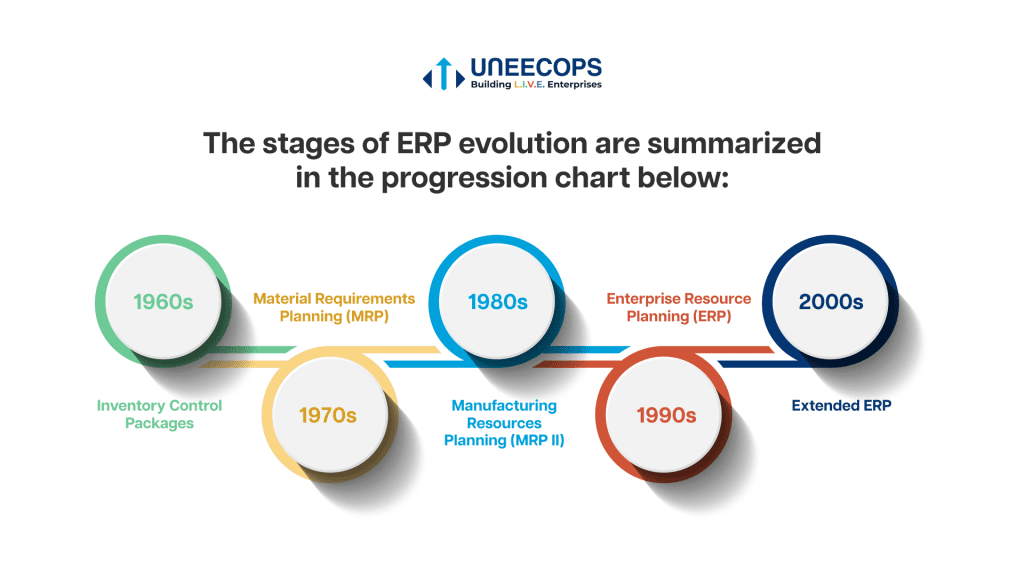Unlocking Efficiency and Growth: ERP Solutions for Small Manufacturers
Unlocking Efficiency and Growth: ERP Solutions for Small Manufacturers
Welcome, manufacturers! Are you looking to streamline your operations and drive growth in your small manufacturing business? Look no further than ERP solutions. These powerful tools are designed to help you unlock efficiency, improve productivity, and ultimately, boost your bottom line. In this article, we will explore how ERP solutions can benefit small manufacturers and why they are essential for staying competitive in today’s fast-paced market. Let’s dive in!
Importance of ERP for Small Manufacturers
Implementing an ERP system can be a game changer for small manufacturers looking to streamline their operations and improve their overall efficiency. These systems offer a wide range of benefits that can help small manufacturers compete in today’s fast-paced business environment.
One of the key benefits of ERP systems for small manufacturers is improved process efficiency. By integrating all of their business processes into a single system, manufacturers can reduce the time and effort required to complete tasks such as order processing, inventory management, and production planning. This increased efficiency not only leads to cost savings but also allows small manufacturers to respond more quickly to customer demands and market changes.
Additionally, ERP systems provide small manufacturers with greater visibility into their operations. By consolidating all of their data into one centralized system, manufacturers can easily track key performance indicators, monitor trends, and identify areas for improvement. This visibility enables small manufacturers to make more informed decisions and adapt their strategies in real-time, leading to better business outcomes.
Another important benefit of ERP for small manufacturers is improved collaboration and communication. With an ERP system in place, employees across different departments can easily access and share information, leading to better coordination and faster decision-making. This seamless communication not only helps small manufacturers avoid costly errors and delays but also fosters a culture of collaboration and innovation within the organization.
Moreover, ERP systems can help small manufacturers enhance their customer relationships. By centralizing customer data and integrating it with other business processes, manufacturers can provide more personalized and responsive service to their customers. This improved customer experience can lead to increased customer loyalty and repeat business, ultimately driving growth and profitability for small manufacturers.
Overall, the importance of ERP for small manufacturers cannot be overstated. These systems offer a wide range of benefits that can help small manufacturers improve their efficiency, visibility, collaboration, and customer relationships. By investing in an ERP system, small manufacturers can not only survive but thrive in today’s competitive business landscape.
Cost-effective ERP Options for Small Manufacturers
When it comes to choosing an ERP system for a small manufacturing business, cost-effectiveness is a key factor to consider. Small manufacturers often have limited budgets and resources, which is why it’s important to find an ERP solution that offers the right balance between functionality and affordability.
One cost-effective option for small manufacturers is to use cloud-based ERP software. Cloud-based ERP systems are typically more affordable than traditional on-premise solutions because they do not require expensive hardware or software installations. Instead, cloud-based ERP systems are hosted on remote servers and can be accessed via the internet, making them an ideal choice for small businesses with limited IT resources.
Another cost-effective ERP option for small manufacturers is to choose a modular ERP system. Modular ERP systems allow businesses to select and pay for only the modules they need, rather than investing in a full suite of ERP software that may include features and functionalities that are not relevant to their business. This can help small manufacturers save money by only paying for the tools and capabilities they actually use.
Open-source ERP software is also a cost-effective option for small manufacturers. Open-source ERP systems are developed and maintained by a community of volunteers, which means that they are usually available for free or at a very low cost. While open-source ERP software may not offer the same level of customer support as proprietary solutions, it can still be a viable option for small manufacturers looking to save money on their ERP system.
Finally, subscription-based ERP services are another cost-effective option for small manufacturers. With a subscription-based ERP service, businesses pay a monthly or annual fee to access the software, which can help spread out the cost of implementing an ERP system over time. Subscription-based ERP services also typically include regular updates and maintenance, which can help small manufacturers avoid unexpected expenses down the line.
In conclusion, there are several cost-effective ERP options available for small manufacturers. By choosing a cloud-based system, a modular solution, open-source software, or a subscription-based service, small manufacturers can find an ERP system that meets their needs without breaking the bank.
Customization and Scalability in ERP Solutions for Small Manufacturers
When it comes to ERP solutions for small manufacturers, one size definitely does not fit all. Each small manufacturer operates in a unique environment with specific needs and challenges. Therefore, the ability to customize an ERP system to fit the organization’s specific requirements is crucial.
Customization allows small manufacturers to tailoring their ERP system to match their business processes, workflows, and industry-specific requirements. This can include modifying modules, adding new functionalities, or integrating with existing systems that are critical to the business operations. For example, a small manufacturer in the food industry may require specific lot tracking and traceability features that are not typically included in a generic ERP system. By customizing their ERP solution, the manufacturer can ensure compliance with industry regulations and improve operational efficiency.
Furthermore, scalability is another important aspect to consider when choosing an ERP solution for small manufacturers. As businesses grow and evolve, their ERP system needs to be able to grow with them. Scalability refers to the system’s ability to handle an increasing amount of data, users, and transactions without compromising performance.
For small manufacturers, scalability is essential because their needs can change rapidly due to market demands or external factors. An ERP system that can scale easily allows the business to adapt to new challenges, expand into new markets, or increase production without the need for a complete system overhaul.
Scalability also applies to the cost of the ERP solution. Small manufacturers may start with a basic ERP system and as they grow, they may need additional features and functionalities. Therefore, it is important to choose an ERP provider that offers flexible pricing options and modules that can be added as needed.
In conclusion, customization and scalability are key considerations when selecting an ERP solution for small manufacturers. The ability to tailor the system to meet specific business requirements and the flexibility to adapt to changing needs is essential for the success of small manufacturers in a competitive market. By choosing an ERP solution that offers customization and scalability, small manufacturers can streamline their operations, improve efficiency, and ultimately achieve their business goals.
Integrating ERP Systems with Small Manufacturing Processes
Implementing an ERP system in a small manufacturing business can be challenging, but the benefits far outweigh the initial difficulties. One of the key aspects of integrating an ERP system with small manufacturing processes is ensuring that the system is tailored to the specific needs and capabilities of the business. This involves working closely with the ERP provider to customize the system to match the production processes, inventory management, and other critical aspects of the manufacturing business. Additionally, it is essential to train employees on how to effectively use the new ERP system to maximize its potential and create a more streamlined operation.
Another important aspect of integrating an ERP system with a small manufacturing business is ensuring that the system is scalable and can grow with the business. As a small manufacturer expands, the ERP system should be able to accommodate the increased demand for products, additional production lines, and any other changes that come with growth. This requires careful planning and regular communication with the ERP provider to make sure that the system can adapt to the evolving needs of the business.
Furthermore, integrating an ERP system with small manufacturing processes involves connecting different departments within the business to streamline operations and improve efficiency. By linking production, inventory, sales, and accounting departments through the ERP system, managers can easily track key performance indicators, identify bottlenecks in the production process, and make data-driven decisions to optimize the manufacturing operation. This level of integration not only improves communication and collaboration among departments but also enhances overall productivity and profitability.
Moreover, integrating an ERP system with small manufacturing processes enables real-time data analysis and reporting, allowing managers to make informed decisions quickly. With accurate and up-to-date information on inventory levels, production schedules, and sales trends, managers can identify opportunities for cost savings, anticipate customer demand, and adjust production plans accordingly. This level of visibility into the manufacturing operation is crucial for small manufacturers looking to stay competitive in a fast-paced market.
In conclusion, integrating an ERP system with small manufacturing processes requires careful planning, customization, and collaboration with the ERP provider. By tailoring the system to match the specific needs of the business, ensuring scalability as the business grows, connecting different departments to streamline operations, and enabling real-time data analysis and reporting, small manufacturers can improve efficiency, productivity, and profitability. With the right ERP system in place, small manufacturers can compete with larger businesses and thrive in today’s competitive manufacturing landscape.
Improving Efficiency and Productivity with ERP for Small Manufacturers
Implementing an ERP system in a small manufacturing business can significantly improve efficiency and productivity. ERP software integrates various functions within the organization, such as inventory management, production planning, scheduling, and order processing, into a single system. This integration allows for real-time data sharing and collaboration among different departments, eliminating the need for manual data entry and reducing the risk of errors. With all relevant information stored in one centralized location, employees can easily access data and make informed decisions faster.
ERP systems also automate repetitive tasks and streamline processes, saving time and resources for small manufacturers. For example, automated order processing and invoicing can reduce administrative tasks, allowing employees to focus on more strategic activities that add value to the business. In addition, ERP systems provide insights into production performance, inventory levels, and customer demands, enabling small manufacturers to optimize their operations and meet customer expectations more effectively.
Another benefit of ERP for small manufacturers is improved communication and collaboration among employees. With a centralized system in place, employees from different departments can easily access and share information, leading to better coordination and decision-making. This seamless communication can facilitate faster response times to customer inquiries, reduce lead times, and ultimately increase customer satisfaction.
Furthermore, ERP systems enable small manufacturers to track key performance indicators (KPIs) and monitor their performance in real-time. By setting performance targets and analyzing data, businesses can identify areas for improvement and implement corrective actions promptly. This proactive approach can help small manufacturers stay competitive in the market and adapt to changing business conditions more effectively.
Additionally, ERP systems provide small manufacturers with accurate and timely reporting capabilities. With built-in analytics tools, businesses can generate reports on various aspects of their operations, such as sales, production efficiency, and inventory levels. These insights can help management make data-driven decisions, identify trends, and forecast future demand more accurately.
In conclusion, implementing an ERP system can have a transformative impact on small manufacturing businesses by improving efficiency, productivity, and decision-making processes. By automating tasks, streamlining processes, and providing real-time insights, ERP systems enable small manufacturers to optimize their operations, reduce costs, and enhance customer satisfaction. With the right ERP solution in place, small manufacturers can stay competitive in today’s fast-paced business environment and position themselves for long-term success.






